Description
ABSTRACT
An Overview of the Legal Principles Governing the Creation and Operation of Ship Financing in Nigerian Maritime Industry
Ekundayo O Babatunde*
This article analysed the legal framework governing ship financing within the Nigerian maritime industry, particularly regarding its protection and preservation of the indigenous ship operators. The study, therefore, identifies the laws governing ship financing in Nigeria; analysed their provisions regarding foreign and local participation in financing the local industry; identified issues bedevilling efficiency and/or inefficiency of these provisions; and appraise issues surrounding the view that encourages looking into foreign investment as a suitable alternative means of financing indigenous ship owners in the Nigerian maritime industry. Through reliance on primary and secondary sources of data, it was found that foreign companies had dominated the Nigerian shipping industry for several decades because of how capital-intensive it is and the technological sophistication that the shipping business required. The study also found that to reduce capital flight arising from the domination of shipping industry by foreign companies and attendance security threat it poses the nation’s sovereign existence, the Coastal and Inland Shipping Act (Cabotage Act) was enacted in 2003 to stimulate local content in the Nigerian shipping industry by making provisions that will facilitate the creation of enabling environment and galvanises resources for indigenous businesses to compete favourably with foreign shipping companies. It was further found that the failure of the Government to build a viable domestic shipbuilding industry through investment in infrastructure and human capital hampered efficient implementation of the Act.
Keywords: Maritime, Shipping, Admiralty Jurisdiction, Ship Financing, Federal High Court Act,
INTRODUCTION
Nigeria does not need a soothsayer to know that the survival of the national economy from the several waves of the economic meltdown is directly hinged on economic diversification. The Nigerian economy has been dependent on income from crude oil since the oil boom of the 1970s. As a result, other creative industries such as agriculture, mining, tourism and maritime have suffered neglect.1 In addition, the governance structure does not pay attention to capacity-building to help accommodate economic shocks. Instead, the nation focuses on the distribution of income from the oil sector. However, this has become increasingly unsustainable. Besides the exhaustible nature of crude oil resources, which calls for concern, the global value of crude has fallen consistently over…
* PhD, BL. Senior Lecturer and Head, Department of Public and International Law, Faculty of
Law, Kola Daisi University, Ibadan, Nigeria. Email: ol*********@***oo.com,
Tel: +234 803 4969 142.
- VOS Okeke and ET Aniche, ‘An Evaluation of the Effectiveness of the Cabotage Act 2003 on Nigerian Maritime Administration’ (2012) 2(1) Sacha Journal of Policy and Strategic Studies.

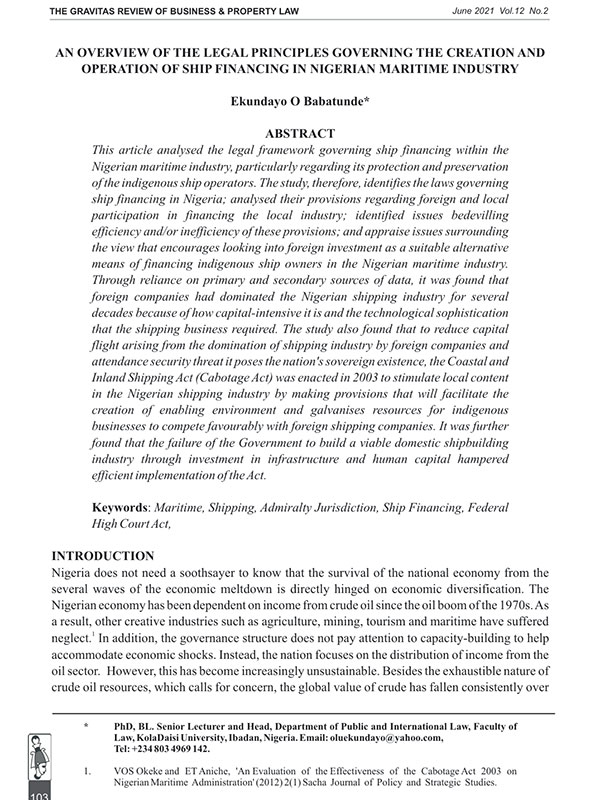
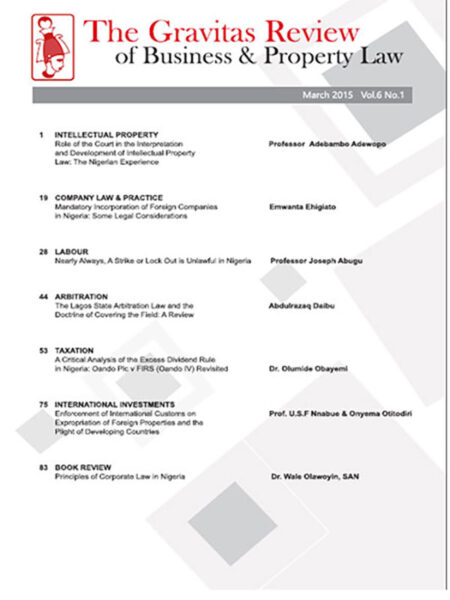
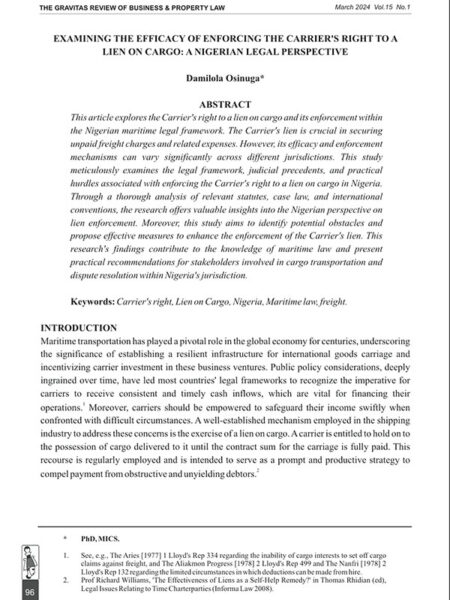
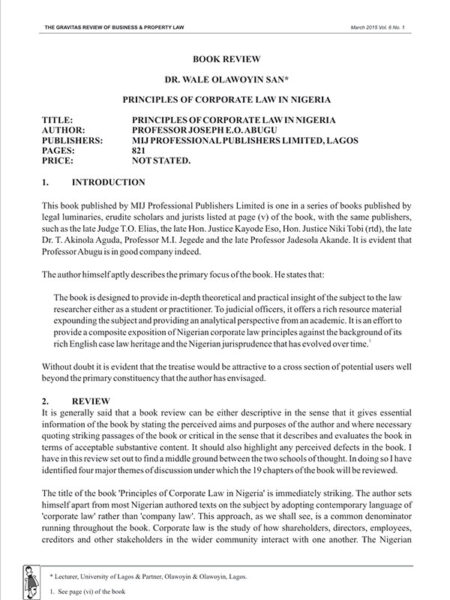
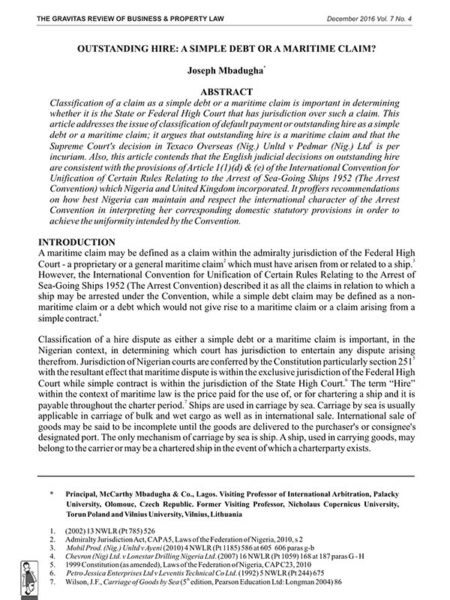


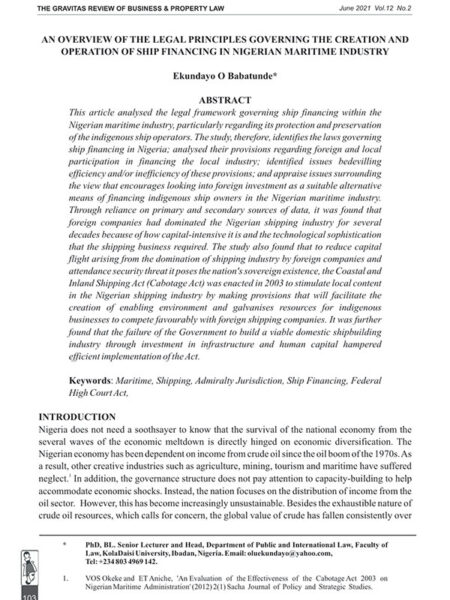
Reviews
There are no reviews yet.